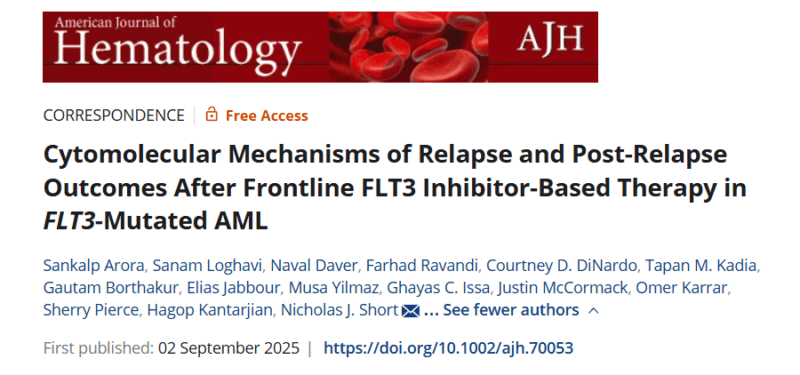Sanam Loghavi, Associate Professor of Pathology at MD Anderson Cancer Center, Medical Director of ECOG-ACRIN Leukemia Bank and Editor in Chief of Image Bank at the American Society of Hematology, shared a post on X about recent paper she and colleagues co-authored:
“Cytomolecular Mechanisms of Relapse and Post-Relapse Outcomes After Frontline FLT3 Inhibitor-Based Therapy in FLT3-Mutated AML.”
Authors: Sankalp Arora, Sanam Loghavi, Naval Daver, Farhad Ravandi, Courtney D. DiNardo, Tapan M. Kadia, Gautam Borthakur, Elias Jabbour, Musa Yilmaz, Ghayas C. Issa, Justin McCormack, Omer Karrar, Sherry Pierce, Hagop Kantarjian, Nicholas J. Short
Read The Full Article at American Journal of Hematology.
About the Study
This study analyzed 272 patients with newly diagnosed FLT3-mutated AML who received frontline treatment with a FLT3 inhibitor. While most achieved remission, relapse was common—especially with lower-intensity regimens. Patients who underwent a stem cell transplant in first remission had much lower relapse rates.
Among the 80 patients who relapsed, researchers found that resistance often developed through RAS-MAPK pathway mutations or new FLT3 mutations. Relapse patterns varied depending on treatment type and transplant status, showing the need for better relapse-prevention strategies in FLT3-mutated AML.

More posts featuring Sanam Loghavi on OncoDaily.


